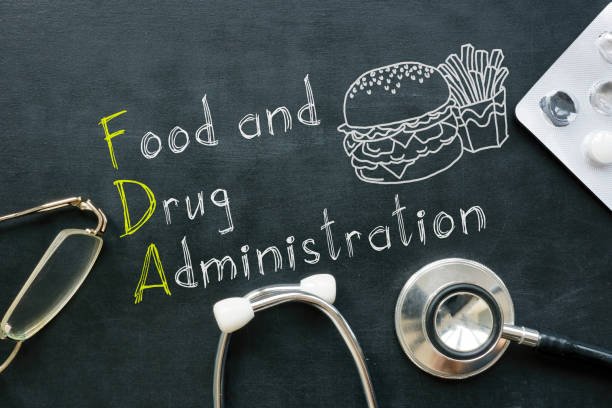The article highlights the key points related to the regulatory status of the products based on the existing legal framework.

Table of Contents
The Food and Drug Administration (FDA or the Agency), the US regulating authority in the sphere of healthcare products, has published a draft guidance document dedicated to medical devices with indications associated with weight loss.
In particular, the document describes the aspects related to clinical studies, as well as benefit-risk considerations. Once finalised, the guidance will provide an overview of the applicable regulatory requirements as set forth under the current framework, and also additional clarifications and recommendations to be taken into consideration by medical device manufacturers and other parties involved in order to ensure compliance thereto.
At the same time, it is important to mention that guidance documents issued by the FDA are non-binding in their legal nature, nor are they intended to introduce new rules or impose new obligations.
Moreover, the authority explicitly states that an alternative approach could be applied, provided such an approach complies with the underlying legislation and has been agreed with the authority in advance.
Introduction
The present draft guidance is issued to provide additional recommendations concerning the clinical study design for devices that have indications related to weight loss.
This broad umbrella includes devices designed for weight reduction, weight management, and treating obesity in overweight or obese patients.
The nature of these devices varies significantly, leading to differences in both the weight loss demonstrated and the associated risks.
With this guidance, the FDA aims to present its current review methods for premarket submissions under different pathways including Premarket Approval (PMA) Applications, Investigational Device Exemption (IDE) Applications, Premarket Notifications (510(k)s), and De Novo classification requests.
The end goal is to achieve consistency and streamline the review process for these devices.
As it was mentioned before FDA guidance documents do not impose legally binding responsibilities.
Instead, these guidelines provide a brief overview of the FDA’s current viewpoint on the matter. Recommendations such documents contained are not obligatory unless specific regulatory or statutory requirements are invoked.
Regulatory Background
Before formulating this draft guidance, the FDA had sought public feedback on a concept paper earlier in September 2019.
This paper addressed the challenge of balancing the potential benefits of weight loss against the potential risks of adverse events. By taking into account public comments, the FDA adjusted the guidance.
This move was in line with the FDA’s objective of ensuring transparency and providing clear information on how weight loss associated devices are regulated.
Furthermore, the FDA has a history of collaboration and communication with stakeholders. A few notable instances include:
- In 2005, the Pediatric Advisory Committee held a public meeting on the design of clinical trials for pediatric obesity devices.
- In 2011, a collaborative workshop titled “Device Development in Obesity anMetabolic Disease (DDOMD)” was co-sponsored by the FDA, Dartmouth Medical School, and Massachusetts General Hospital.
- In 2012 the Medical Devices Advisory Committee discussed general matters related to obesity treatment devices and offered clinical study design suggestions.
- In 2013, the FDA unveiled a benefit-risk assessment tool for the systematic evaluation of obesity treatment devices.
- In 2015 the FDA collaborated with Research Triangle Institute Health Solutions (RTI‐HS) to undertake the first-ever national benefit‐risk patient preference study. This provided insights into patient risk tolerance levels for weight loss devices.
- A significant step was taken in 2018 when the FDA arranged a session to listen to the experiences of patients who had used FDA-approved weight loss devices.
The document also contains references to the Q-Submission Program, which details requests for feedback and meetings for medical device submissions. The said program is described in detail in a separate guidance document issued by the FDA.
Scope
The scope of this guidance document covers medical devices with indications related to weight loss.
This includes devices that have indications for weight loss, weight management, obesity treatment, and weight reduction for overweight or obese individuals.
A table is provided in the document, enumerating the current product codes for such devices. However, the authority also mentions that with time, new product codes or classification regulations might be introduced.
If there is any uncertainty regarding the applicability of the guidance to a particular device, the FDA recommends referencing the product code database or reaching out to the Office of Gastro-Renal, ObGyn, General Hospital, and Urology Devices.
Furthermore, this guidance document sheds light on special controls applicable to certain devices.
Specific controls are delineated for devices such as oral removable retainers for weight management, ingested devices for weight management or weight loss, and endoscopic suturing devices for altering gastric anatomy to induce weight loss.
Conclusion
The present guidance provides a brief overview of the relevant regulatory developments and also highlights the key points related to the regulatory status of the products in question.
The document is intended to improve the overall quality of submissions related to medical devices with weight loss indications.
How Can RegDesk Help?
RegDesk is a holistic Regulatory Information Management System that provides medical device and pharma companies with regulatory intelligence for over 120 markets worldwide. It can help you prepare and publish global applications, manage standards, run change assessments, and obtain real-time alerts on regulatory changes through a centralized platform. Our clients also have access to our network of over 4000 compliance experts worldwide to obtain verification on critical questions. Global expansion has never been this simple.


